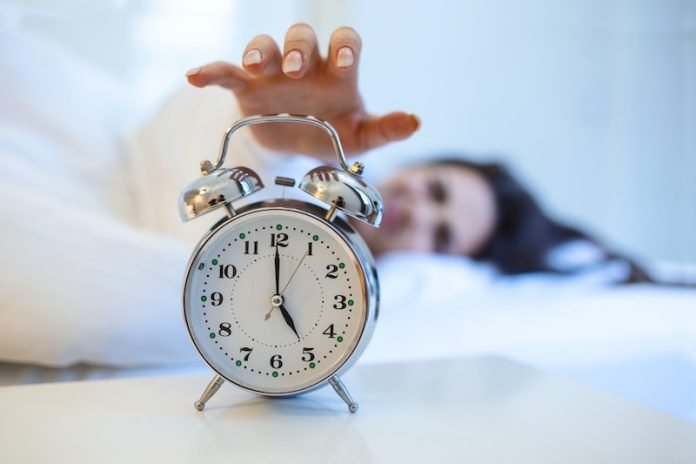
The Trouble with Insomnia
Ever found yourself lying wide awake at night, watching the minutes tick by on the clock? This frustrating situation is all too familiar to people struggling with insomnia.
This sleep disorder affects between 4% to 22% of adults. What’s more, it’s linked to serious health problems like heart disease, diabetes, and depression.
A new study from Indiana University (IU) says that watching the clock can actually make insomnia worse.
The Study on Sleep and Clock-Watching
Professor Spencer Dawson, an associate director at IU’s Department of Psychological and Brain Sciences, led this research. Dawson and his team focused on about 5,000 patients who sought help from a sleep clinic.
The patients filled out questionnaires about their sleep problems.
They answered questions about the severity of their insomnia, how much sleep medication they used, and how much time they spent watching the clock while trying to sleep.
The researchers also asked about any mental health conditions the patients might have.
Findings: The Vicious Cycle of Insomnia and Clock-Watching
Dawson found that the more the patients watched the clock, the worse their insomnia got. He explained that people often worry about not getting enough sleep.
They might even start calculating how long it will take to fall asleep or when they need to wake up. This kind of behavior only makes it more difficult to fall asleep.
The stress and frustration often lead to using more sleep aids, creating a vicious cycle.
A Simple Solution for Insomnia?
Dawson suggests a straightforward solution could help. He advises patients to turn their clocks around or cover them up. The idea is to stop checking the time.
He also recommends putting away smartwatches and smartphones. Dawson believes that watching the clock isn’t helpful at all.
More About Dawson’s Work on Sleep
Dawson has spent 15 years researching sleep and working with patients in the field. He’s particularly interested in comparing people’s sleep experiences with what’s happening in their brains at the same time.
He also mentors doctoral students in IU’s Clinical Science Program. Dawson’s study is published in The Primary Care Companion for CNS Disorders.
In summary, watching the clock might seem like a harmless habit. But for people with insomnia, it can make a bad situation even worse.
So the next time you can’t fall asleep, try turning your clock around or covering it up. It could be a simple step towards a better night’s sleep.
If you care about brain health, please read studies about how the Mediterranean diet could protect your brain health, and Omega-3s could improve brain structure, cognition at midlife.
For more information about brain health, please see recent studies about antioxidants that could help reduce dementia risk, and eating more fish may protect the brain from vascular disease.
The study was published in The Primary Care Companion For CNS Disorders.
Copyright © 2023 Knowridge Science Report. All rights reserved.



